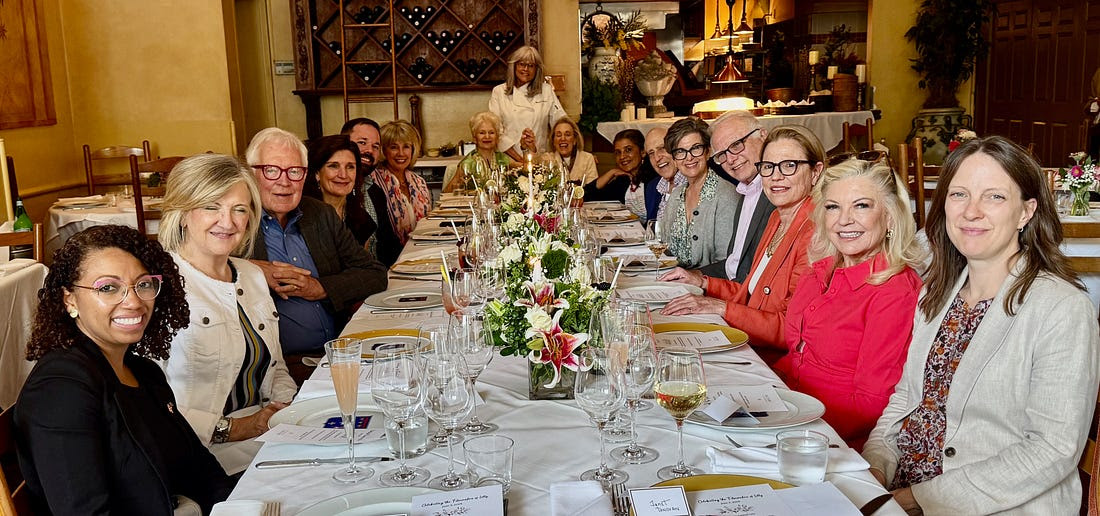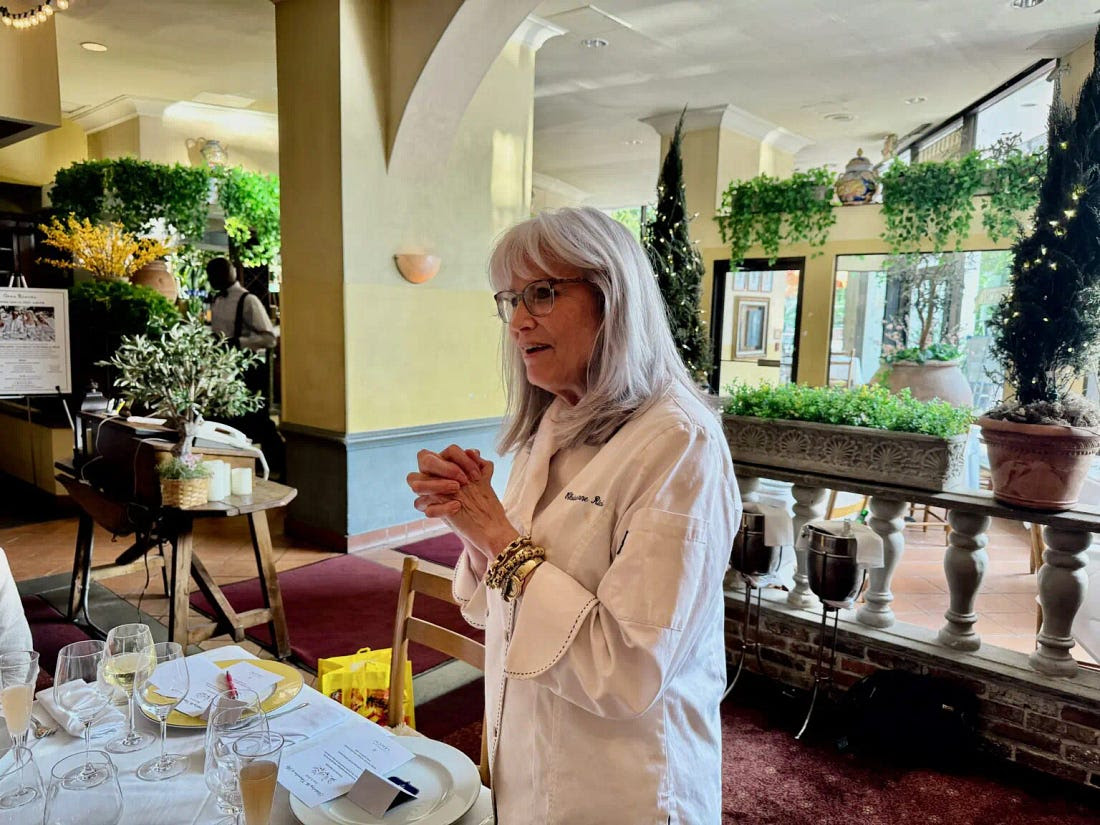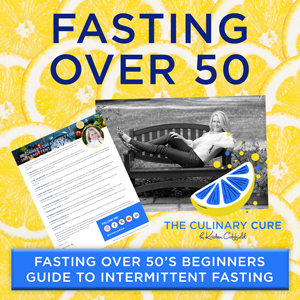Activism Meets Cinema
The latest from Hollywood on the Potomac.

Over Tuscan fare and strong espresso at i Ricchi, a group of power players in policy, media and film gathered for more than lunch. Hosted by Gwen Young, CEO of the Women’s Business Collaborative, and Christianne Ricchi, owner of i Ricchi, the salon-style event spotlighted the film LILLY and the legacy of its namesake, pay equity crusader Lilly Ledbetter. The film, a dramatization of Lilly Ledbetter’s landmark fight for pay equity, is fast becoming more than a biopic. It’s a rallying cry.
Before turning the floor over to the film’s director, Gwen Young set the tone: A call for urgency and unity around the unfinished business of gender equity in America. Young reminded the room of the bill signed into law by President Obama—the Lilly Ledbetter Fair Pay Act, the first legislation he endorsed from the Oval Office. The law may have carried Ledbetter’s name, but its resonance reaches far beyond one woman or one case.
The filmmaker rose to speak. And speak she did. The power lunch that could’ve passed for a casting call in activism meets cinema, the director of LILLY didn’t just speak—she projected – “How’s this projection working?” she asked, scanning the crowd. “Lunch was delicious. Compliments to Christianne — thank you. And thank you all for doing this and for having us. It’s really very special.”

LILLY the film doesn’t just retell the story of a factory supervisor’s court case, it’s a portrait of grit – of David vs. Goliath. Of transformation. And, in the filmmaker’s words, of “radical resilience.” “I made the film for the same reason that all of you have been fighting the good fight all of your lives,” she began. “And it’s interesting to me that as we travel the country with the film, wherever we go, women will rush up………’I did this, I did that, and I had the exact same experience.’”
“So Lilly’s story is unique to her as a tire factory supervisor,” she continued. “but all over the world, men and women—anyone who suffered from any kind of oppression—deals with, ‘How do I, as a tiny little David, fight against a giant Goliath?’ The answer, the film suggests, lies not in perfection, but in purpose.”
“Yes, I wanted to talk about gender equity. Yes, I wanted to talk about fair pay. Yes, I wanted to tell the Lilly Ledbetter story. But most importantly I wanted to tell a story about transformation—and how a woman, an aggrieved worker who had no power, who came from nowhere, with no means, not a lot of education, had the strength of purpose within herself to fight… to fight against these monolithic systems.”
The director’s admiration for Ledbetter runs deep. From her childhood in poverty to her quiet confidence as a young woman, Lilly defied the world’s limited expectations. “She was a little girl born into poverty and yet she believed in herself. She wanted to be a ballroom dancer. She wanted to be a cheerleader. She was good in math.”
“She talks about in the book when she first met Charles (Ledbetter), that she was not one of these girls who was always running around with rollers in her hair giggling when boys talked to her. She was an absolute. And Charles respected her as a human being, which is why they got together as teenagers.”
“And why even in the movie, you see, ‘I’m not like the other girls. Why would you want me just to be a wife and a mother? I have ambition. I’m good at stuff.’” Ambition, she noted, is a radical act when it comes from the underestimated. And Lilly was nothing if not underestimated. “My mother warned me about 50 years ago. She knew this was coming at some point. I think this movie is a great movie for this moment in that it’s about radical resilience and doing the right thing—that ordinary human beings do the right thing.”
The film’s festival run provided its own kind of catharsis. “We went to the Hamptons International Film Festival, which was our premiere,” she said. “and Lilly Ledbetter was still alive at the time. Her daughter Vickie and her family came and sat with us in a theater of nearly 500, laughing, crying. They gave Patricia Clarkson and me standing ovations. They wrapped us in hugs with tears streaming on their faces. And Vickie was able to go back to her mother… and Lilly died hours later.”
It was, she said, a moment of spiritual transfer—a literal passing of the torch. “She understood the power of cinema. She understood that when you affect people in their hearts, you affect their heads.”
LILLY is set to debut June 10 on Video on Demand. It’s the underdog film we need. Watch LILLY trailer here.





